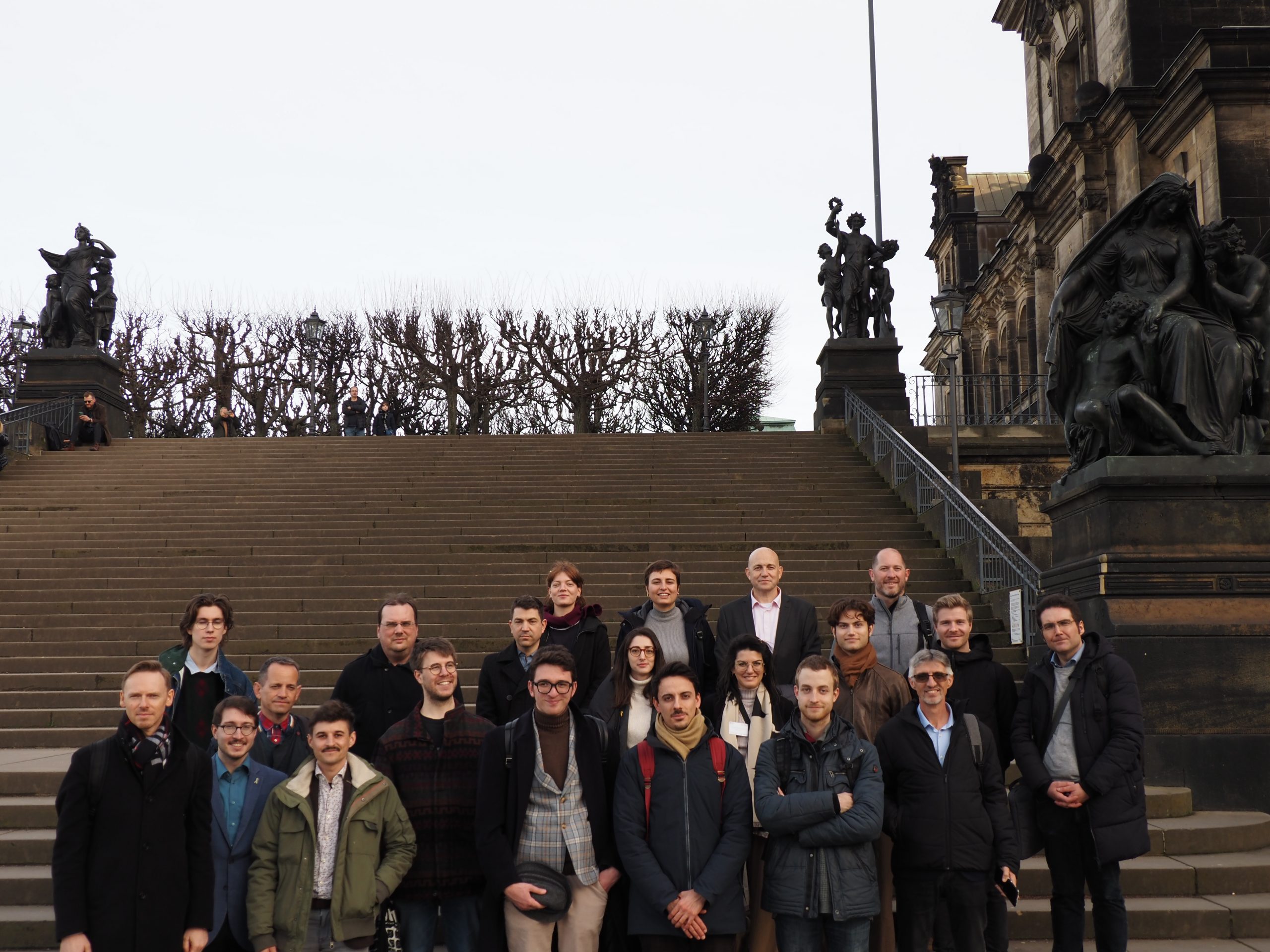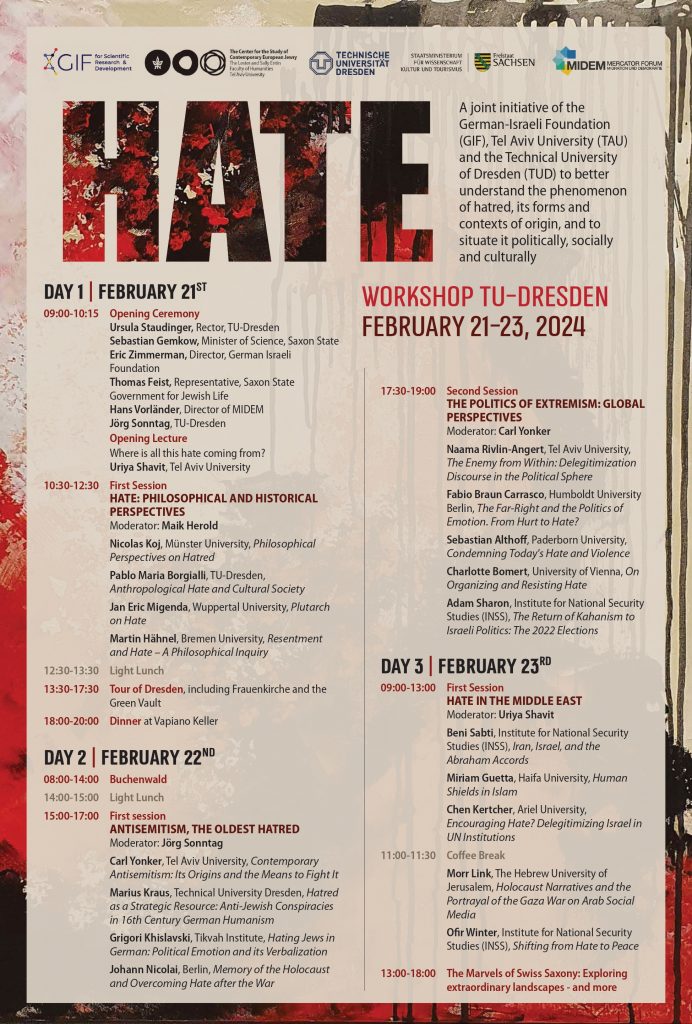Hate Workshop

From February 21-23, 2024, a group of young researchers from Israel and Germany came together in Dresden to discuss, compare, and advance research on hate. The conference aimed to better understand the phenomenon of hate, its forms and context of origin, and to situate it politically, socially and culturally. It further strove to provide a space to form relationships and inspire further study on the topic of hate.
The three-day conference was a joint initiative of the German Israeli Foundation (GIF), our Center at Tel Aviv University, and the Technical University of Dresden (TUD). It received additional support from the Science Ministry of the State of Saxony and the Mercator Forum Migration and Democracy (MIDEM). The primary organization for the conference were made by PD Dr. Jörg Sonntag of TUD and Dr. Maik Herold of TUD and MIDEM, who invested several months in planning to ensure the workshop’s success.
The opening ceremony began with speeches from Prof. Dr. Ursula Staudinger, the Rector of TU-Dresden, Sebastian Gemkow, the Minister of Science of the State of Saxony, Dr. Eric Zimmerman, the Director of the German-Israeli Foundation, Mr. Thomas Feist, the Representative for Jewish Life in Saxony, Prof. Dr. Hans Vorländer, the Director of MIDEM, and PD Dr. Sonntag of TU-Dresden.
Their opening remarks were followed by a lecture by Prof. Uriya Shavit, Head of the Center, titled “Where is all this hate coming from?” In his lecture, Prof. Shavit identified three major reasons for the increased visibility of hate: cognitive dissonance, a gap between life and its perception; the unfiltered world of social media with algorithms that promote echo chambers, and the focus of politics on polls and surveys, which, in consequence, promotes centrism and excludes alternative voices from mainstream politics.
Participating researchers came from different academic disciplines like philosophy, political science, sociology, and literature, leading to a wide array of approaches to the central topic. The focus of the lectures ranged from Francesco Petrarca and Plutarch to an analysis of the delegitimization of political enemies, huaman shields in Islam, and the rise of Kahanism in Israel.
The workshop was divided into four sessions, each of which examined different themes related to the main topic. The first session explored historical and philosophical perspectives on hate that provided a framework for the sessions that followed. The second session focused on antisemitism, the oldest hatred, exploring its historical and contemporary manifestations. The third session broadened the discussion on hate beyond antisemitism to explore global perspectives on the politics of extremism in different contexts. The final session of the workshop featured lectures focused on contemporary manifestations of hate in the Middle East.
Beyond the stimulating lectures and discussions in the seminar room, the schedule also included several excursions. A tour of Dresden’s beautiful old town included stops at the Frauenkirche, the hub of Lutheranism, destroyed in the firebombing of the city at the end of the Second World War and rebuilt in the early 2000s, and the Green Vault, a museum housing Europe’s largest collection of treasures in Dresden Castle. The tour concluded with an opening dinner at a cellar of an Italian restaurant in Dresden. The following day, participants took a guided tour of the concentration camp Buchenwald where they learned about its history and the history of concentration camps in Nazi Germany during the Second World War. The final excursion included a visit to Königsstein Fortress in the national park of Swiss Saxony where participants had a guided tour and learned about the important role the fortress played in the history of the region.
– Written by Fridolin Sablatnig
Hate Workshop February 2024 by Carl Yonker
